

|
|
Wedding Banquet (The) AKA Hsi Yen
R2 - United Kingdom - Altitude Film Distribution Review written by and copyright: Paul Lewis (24th August 2015). |
|
The Film
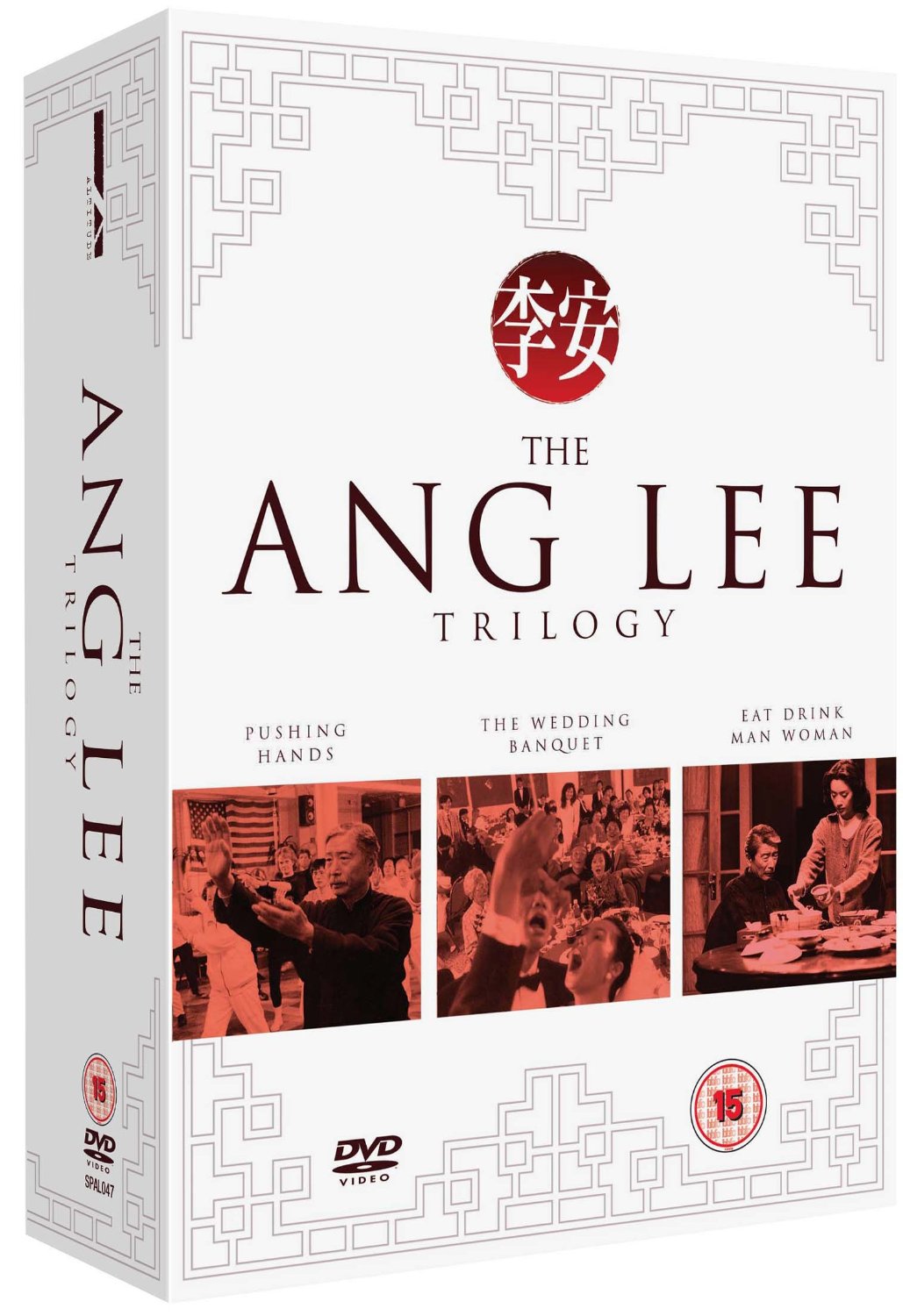 <The Ang Lee Trilogy 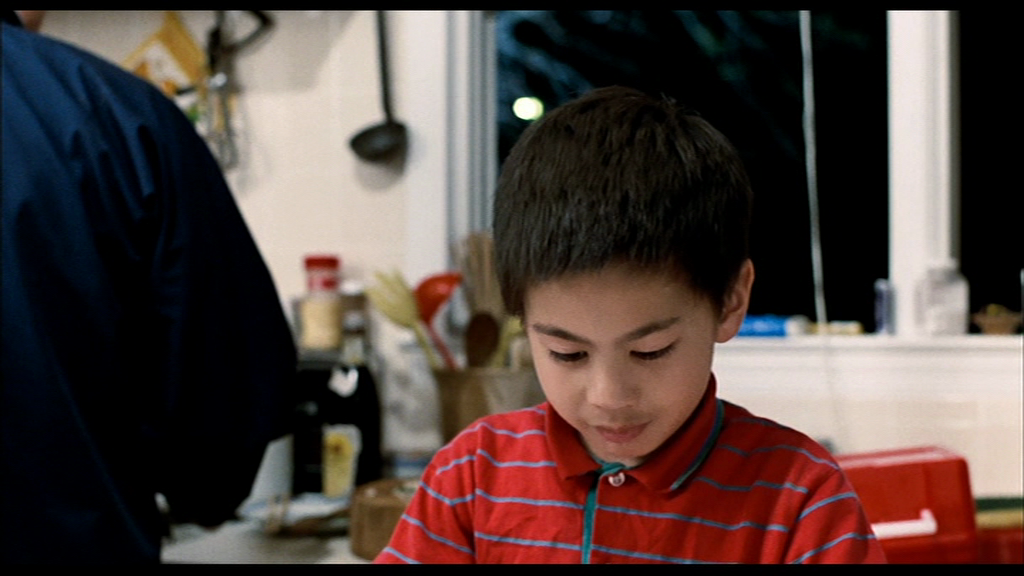 This release brings together Ang Lee’s first three films: Pushing Hands (1992), The Wedding Banquet (1993) and Eat Drink Man Woman (1994). In stark contrast to Lee’s later, often more spectacular films (for example, the wuxia pian picture Crouching Tiger, Hidden Dragon, 2000), these three pictures are united by a common focus on intimate stories that revolve around cultural conflict, inter-generational relationships, family and loneliness. (It’s perhaps noting that these are the only films within Lee’s significant body of work as a director that he wrote himself, although he has written films for other directors too.) The films form a loose trilogy that Lee has labeled the ‘Father Knows Best’ trilogy, owing to the films’ focus on the relationships between different generations situated against the backdrop of an era of rapid social change. This release brings together Ang Lee’s first three films: Pushing Hands (1992), The Wedding Banquet (1993) and Eat Drink Man Woman (1994). In stark contrast to Lee’s later, often more spectacular films (for example, the wuxia pian picture Crouching Tiger, Hidden Dragon, 2000), these three pictures are united by a common focus on intimate stories that revolve around cultural conflict, inter-generational relationships, family and loneliness. (It’s perhaps noting that these are the only films within Lee’s significant body of work as a director that he wrote himself, although he has written films for other directors too.) The films form a loose trilogy that Lee has labeled the ‘Father Knows Best’ trilogy, owing to the films’ focus on the relationships between different generations situated against the backdrop of an era of rapid social change.
The first of these films, Pushing Hands, focuses on an New York family consisting of Chinese-born Alex (Bo Z Wang), his WASP-ish wife Martha (Deb Snyder) and their young son Jeremy (Haan Lee). Alex’s father, Mr Chu (Sihung Lung), has recently retired and has traveled from China to live with his son – much to the consternation of Martha, who has recently published her first novel and is struggling to complete her second. Martha sees the presence of Chu in the family home as a distraction and tries to persuade Alex to accept a loan from her mother so that they may move into a larger house; Alex, however, perceives this as a sleight against his family and resists. Chu and Martha come to loggerheads as Chu, who doesn’t speak English, practises his tai chi in the living room whilst Martha, who speaks very little Chinese, tries to complete her next novel. Meanwhile, whilst teaching tai chi to adult students at the local college Chu finds a connection to his past in Beijing in the form of cookery teacher Mrs Chen (Lai Wang), a widow. In The Wedding Banquet, landlord Wai-Tung Gao (Winston Chao) was born in Taiwan but currently resides in New York with his lover Simon (Mitchell Lichtenstein). Gao’s parents, unaware that he’s gay, wish him to marry and father a child; to hasten this along, Gao’s parents sign him up to a dating service. Hoping to placate his parents, Gao arranges to marry one of his tenants, Wei-Wei (May Chin); the plan works to Wei-Wei’s benefit too, as she is in desperate need of a green card. However, things become (even more) complicated when Gao’s parents travel to America with the intention of financing a huge wedding for Gao. On their wedding night, Wei-Wei rapes the drunken Gao, leading to her becoming pregnant. Gao must go through with the charade, for fear of causing distress to his father (Sihung Lung), who is recovering from a recent stroke. 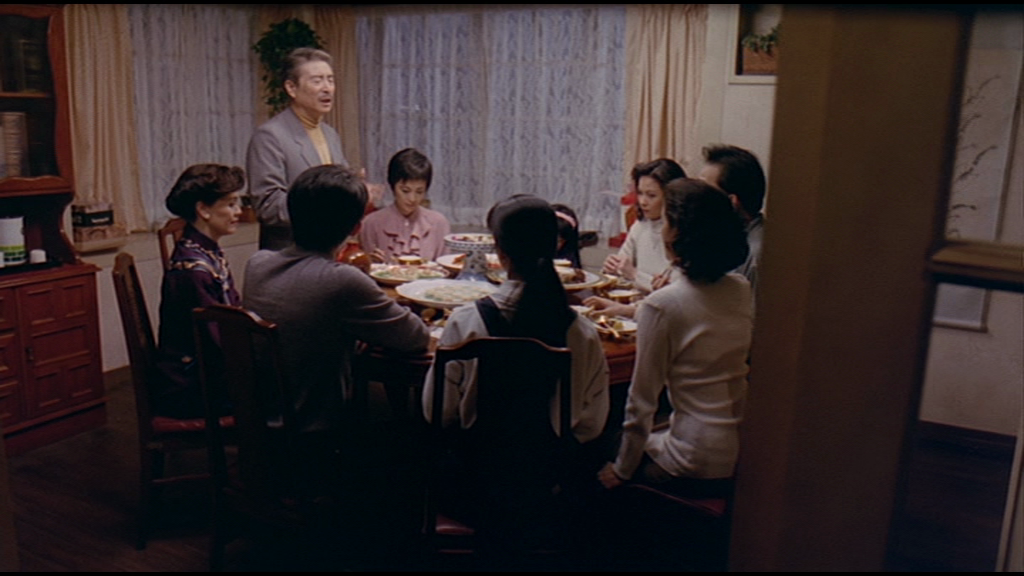 Set in Taipei, Eat Drink Man Woman revolves around patriarch, widower and chef Mr Chu (Sihung Lung). Chu’s three daughters – Jia-Jen (Kuei-Mei Yang), Jia-Chen (Chien-lien Wu) and Jia-Ning (Yu-Wen Wang) – are unmarried. They live with their father, who feels a strong sense of responsibility for their lives. Each Sunday, the family holds a special banquet, in which traditional values are thrown into relief against the dilemmas faced by Chu’s daughters in the modern world. Set in Taipei, Eat Drink Man Woman revolves around patriarch, widower and chef Mr Chu (Sihung Lung). Chu’s three daughters – Jia-Jen (Kuei-Mei Yang), Jia-Chen (Chien-lien Wu) and Jia-Ning (Yu-Wen Wang) – are unmarried. They live with their father, who feels a strong sense of responsibility for their lives. Each Sunday, the family holds a special banquet, in which traditional values are thrown into relief against the dilemmas faced by Chu’s daughters in the modern world.
All three of the films focus to some extent on an ‘East meets West’ narrative. Each of the films’ approach to this theme is almost dialectical, setting up characters with opposing points of view and watching them struggle against one another. This is arguably achieved most strongly in Pushing Hands, in which Chu and Martha – both of whom, quite literally, speak different languages – come into conflict and struggle/fail to communicate with one another. It is left to Alex, and his young son Jeremy, to try to strike a balance between the yin and yang represented through his American wife and his Chinese father. The title of Pushing Hands refers to a tai chi technique that Chu, whose Kung Fu is strong, demonstrates in the film firstly by propelling one of his students into a table containing Mrs Chen’s dumplings (when the tai chi and Chinese cookery classes have been thrown together into the same room by the college principal), and later in the film when, after Alex has been railroaded by his wife into throwing his father out of the family home, Chu finds himself working as a dish washer in a Chinese restaurant and comes into the conflict with the owner of the business – who, unaware of how strong Chu’s Kung Fu is, has Chu assaulted by his other employees before the police become involved. (After demonstrating his tai chi on the police who attend the scene, Chu of course ends up in jail.) 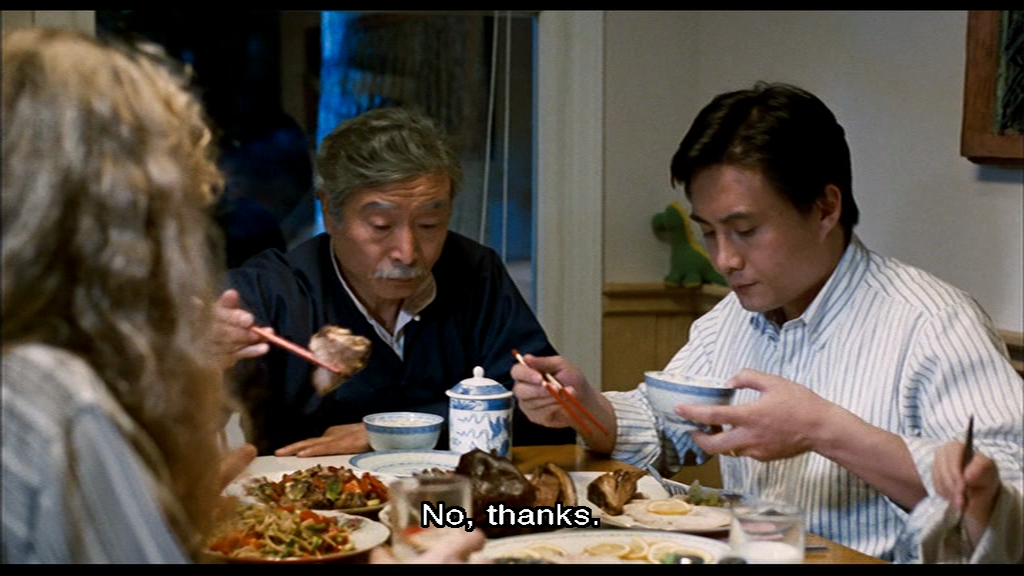 Throughout all three films, Lee highlights the rituals surrounding food and the preparation and sharing of food as a symbolic act. For much of the first hour of Pushing Hands, we see Chu and his daughter-in-law preparing, and eating, very different meals: Chu’s Chinese cuisine is juxtaposed with Martha’s American cooking. When the family sit down to eat together, Chu and Alex eat their Chinese food with chopsticks, whilst Martha uses a knife and fork. (‘Why does this American woman only eath vegetables?’, Chu asks Alex, in Chinese. ‘She’s afraid of getting fat’, Alex replies. ‘Why am I not fat?’, Chu asks, telling his son that vegetables are the yin to meat’s yang and ‘You must eat both to be balanced’.) Later, as their attitudes begin to soften slightly towards one another, we see them become more accepting towards one another’s choice of food. Throughout all three films, Lee highlights the rituals surrounding food and the preparation and sharing of food as a symbolic act. For much of the first hour of Pushing Hands, we see Chu and his daughter-in-law preparing, and eating, very different meals: Chu’s Chinese cuisine is juxtaposed with Martha’s American cooking. When the family sit down to eat together, Chu and Alex eat their Chinese food with chopsticks, whilst Martha uses a knife and fork. (‘Why does this American woman only eath vegetables?’, Chu asks Alex, in Chinese. ‘She’s afraid of getting fat’, Alex replies. ‘Why am I not fat?’, Chu asks, telling his son that vegetables are the yin to meat’s yang and ‘You must eat both to be balanced’.) Later, as their attitudes begin to soften slightly towards one another, we see them become more accepting towards one another’s choice of food.
Lee wrote both Pushing Hands and The Wedding Banquet during the same period, but decided to film Pushing Hands first owing to a feeling that the script for The Wedding Banquet, revolving around two gay characters, might alienate both producers and audiences (Lim, 2006: 35). The Wedding Banquet received praise upon its international released which helped to ‘cushion’ the response to it in Taiwain (ibid.: 36). However, there was still some controversy over the film’s depiction of homosexuality, with one of the judges at the Taiwan’s Golden Horse Awards ceremony ‘threaten[ing] to hold her fellow judges responsible for the proliferation of homosexuality in Taiwan if they presented The Wedding Banquet with an award’ (ibid.). Lee’s narrativisation of the conflicts between tradition and the modern world, it seems, stretch beyond the film frame and have a relevance outside of the films’ respective stories. All three films are uncut and presented on their own discs. Pushing Hands runs for 100:50 mins; The Wedding Banquet runs for 103:27 mins; and Eat Drink Man Woman runs for 118:58 mins (all runtimes are in PAL).
Video
All three films are presented in the 1.78:1 aspect ratio, with anamorphic enhancement. This would seem to be roughly commensurate with the films’ theatrical aspect ratio/s (which one may presume to be 1.85:1). Certainly, the compositions look fine throughout all three of the films. The presentations of all three films are clean and quite impressive, though there’s some quite heavy digital sharpening that seems to have been applied across the board. Contrast is good throughout though seems a little weaker on Eat Drink Man Woman. Pushing Hands 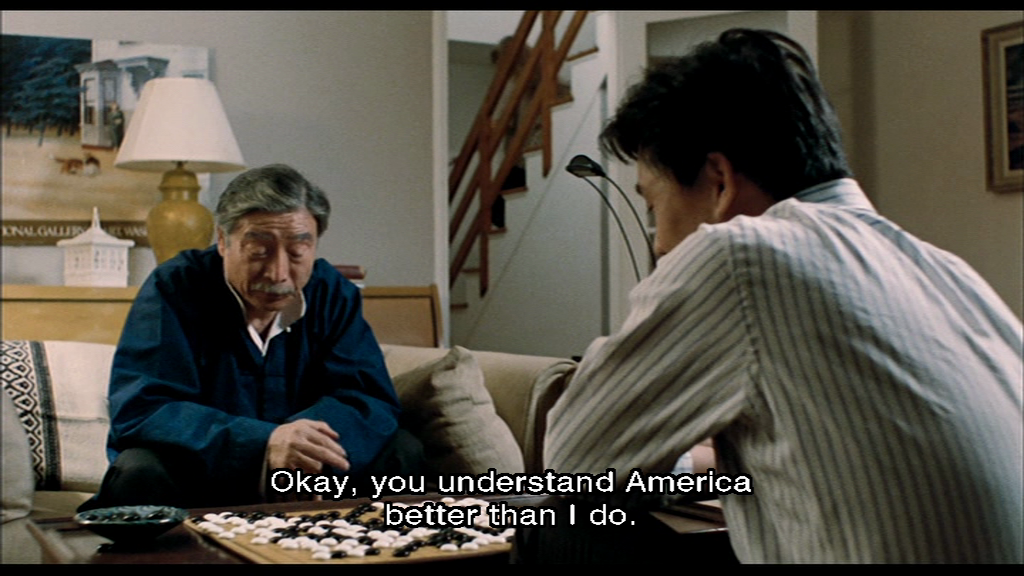
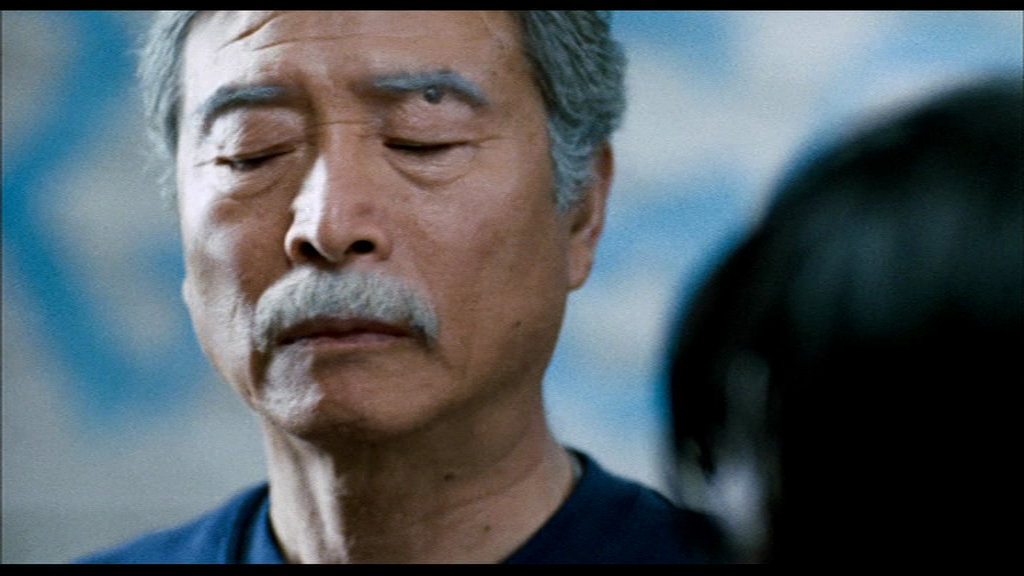
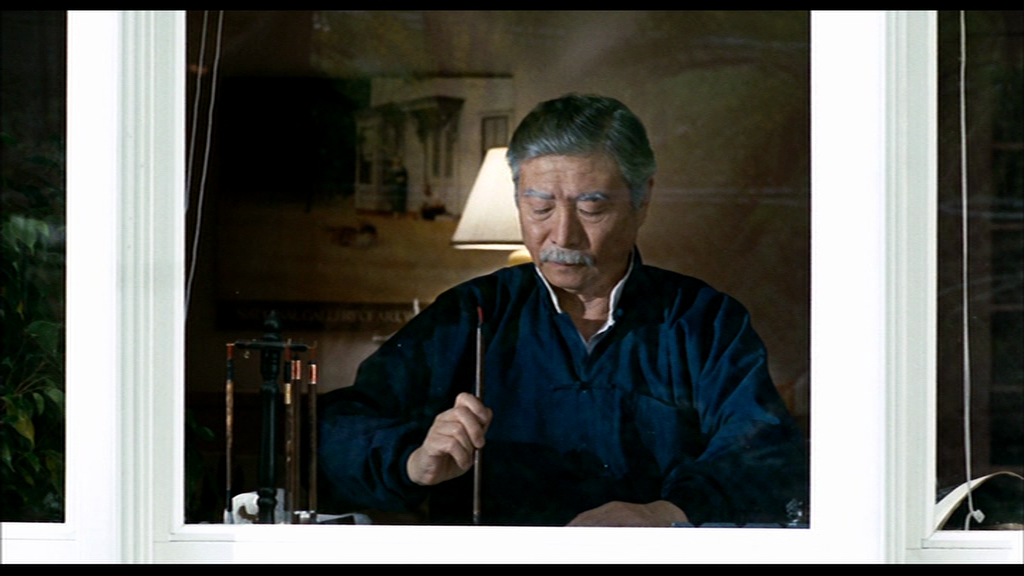
The Wedding Banquet 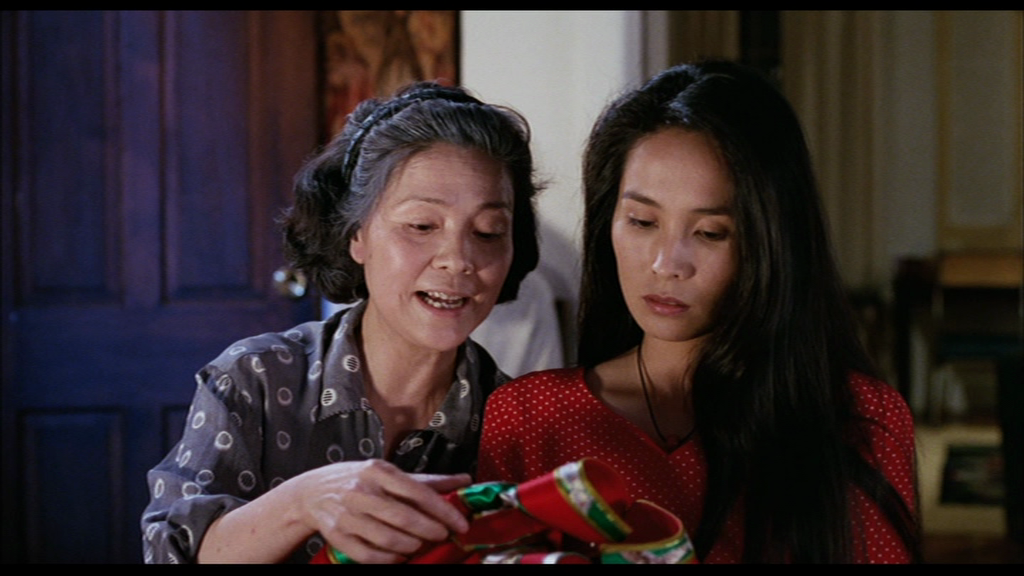
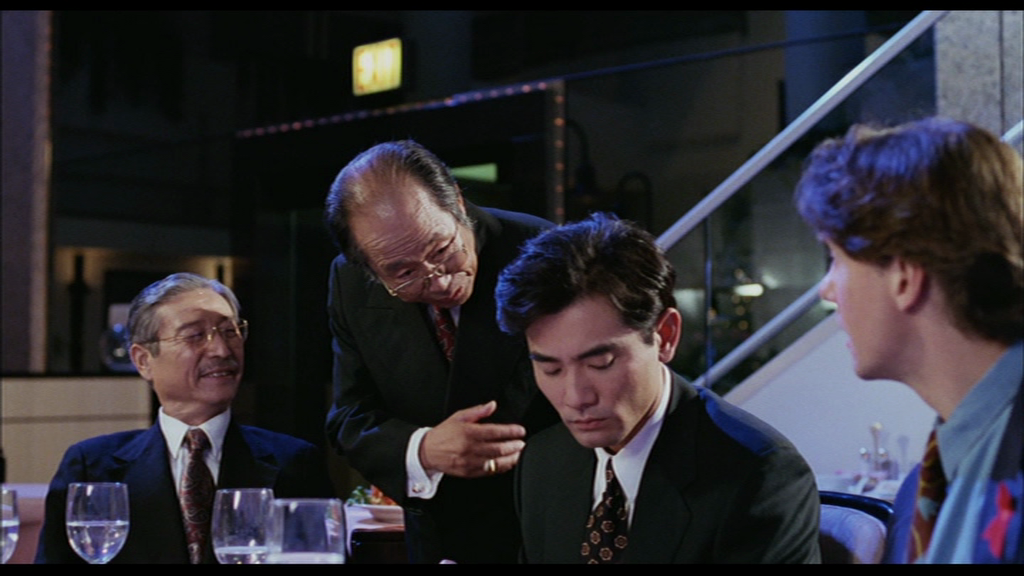
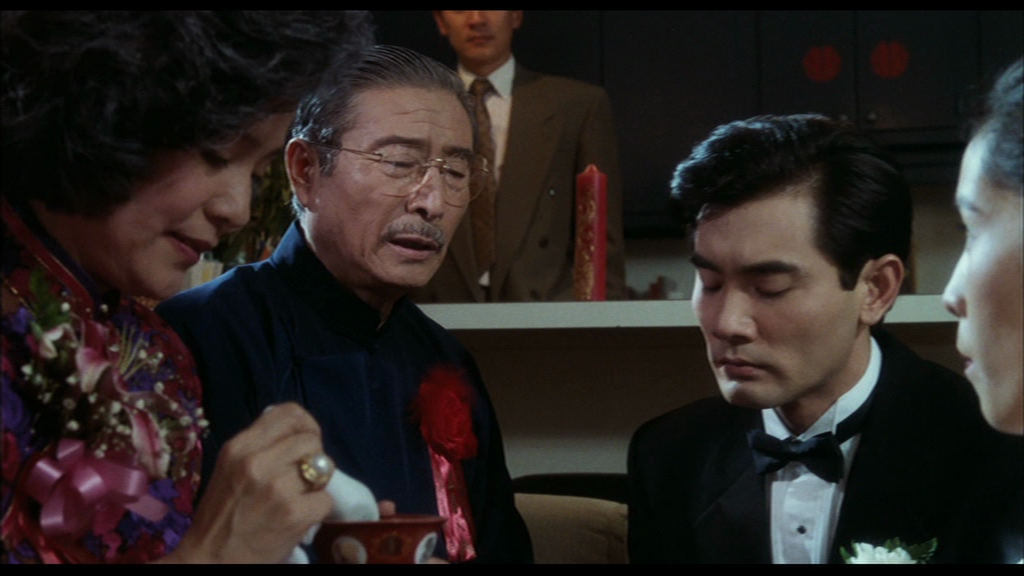
Eat Drink Man Woman 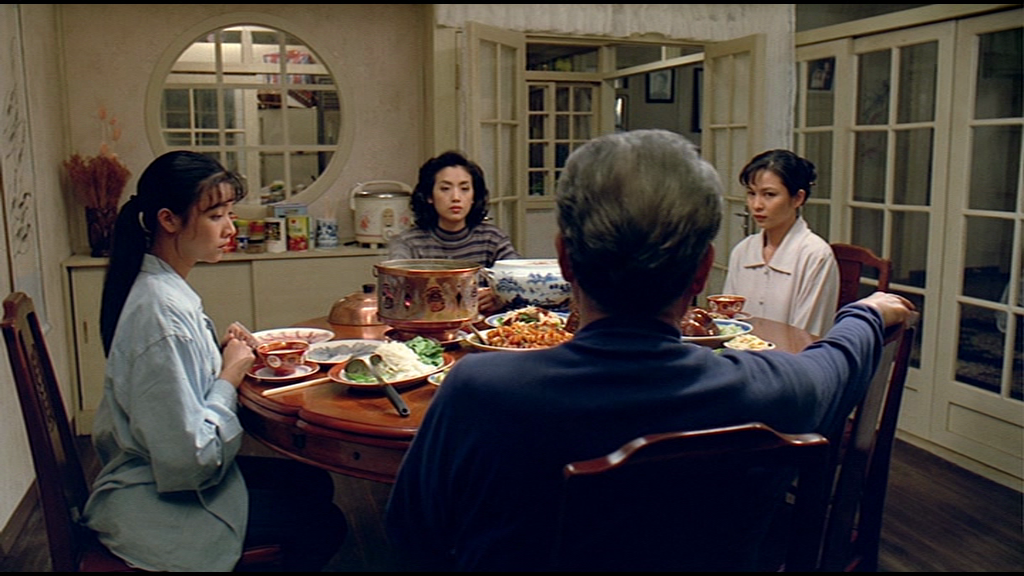
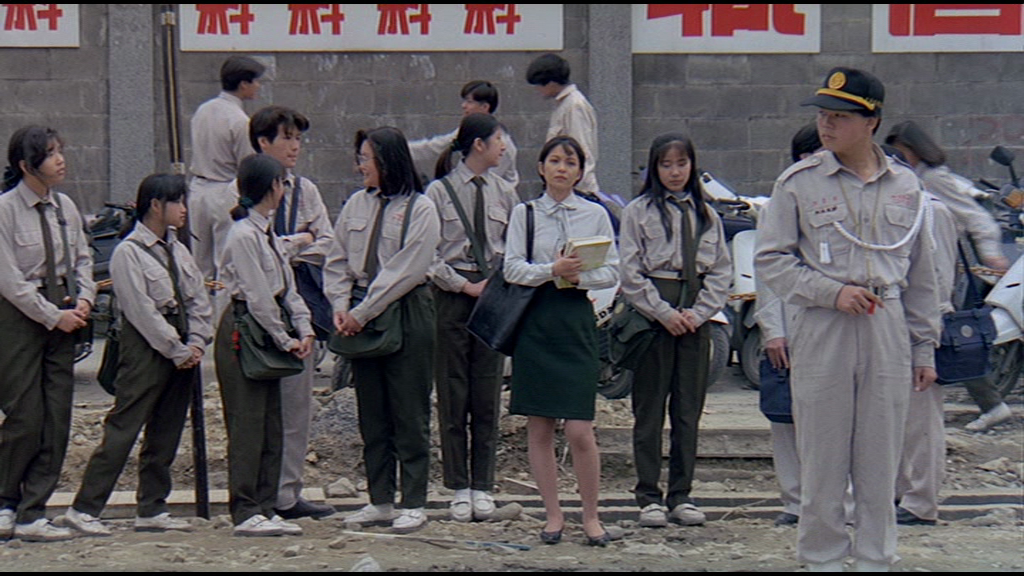
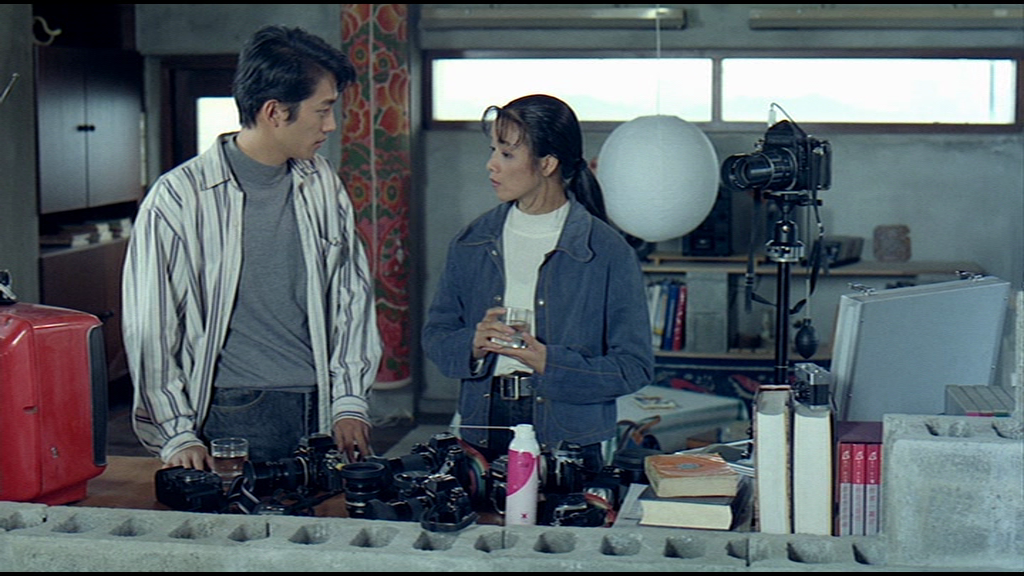
Audio
Pushing Hands’ dialogue is in a combination of English and Mandarin, presented here via a Dolby Digital 2.0 stereo track which has optional English subtitles for the portions of the film featuring Chinese dialogue. The Wedding Banquet also features a combination of English and Mandarin dialogue, again presented in Dolby Digital 2.0 with optional English subtitles for the portions of the film not in English. Finally, Eat Drink Man Woman is presented in Mandarin Dolby Digital 2.0 stereo, with optional English subtitles. All of these audio tracks are clear and free of any issues, and the subtitles (presented in white text) are easy to read and without any major errors.
Extras
There are no extras on the discs whatsoever, though retail copies of this release will apparently include a booklet which will give the films some form of contextualisation.
Overall
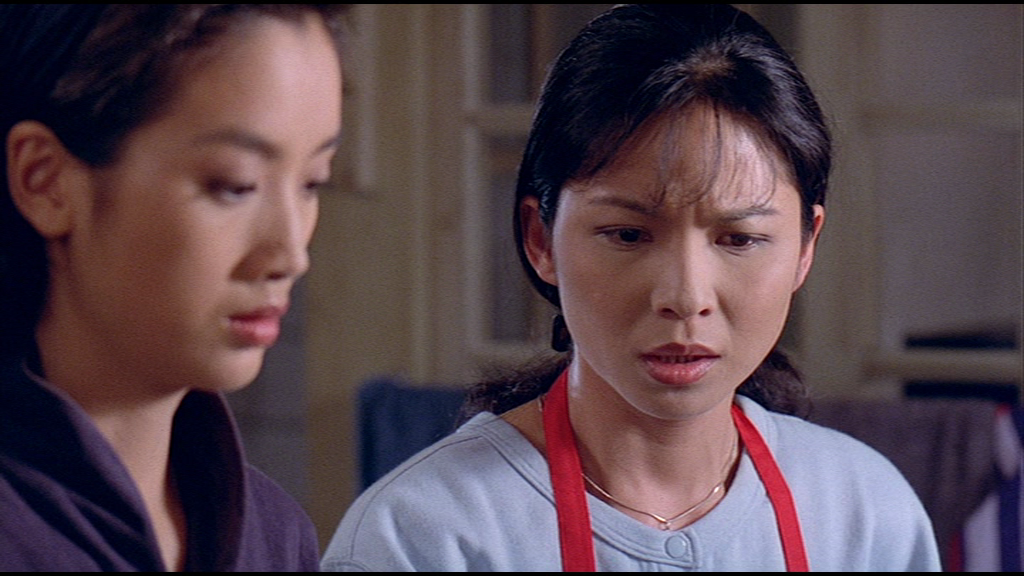 Ang Lee has had a fascinating career, but these three intimate films – the Father Knows Best trilogy – are arguably his best pictures. Taken together, these three films offer a fascinating examination of the clashes between East and West, and between tradition and modernity. None of the films has had a previous DVD release in the UK, so the appearance this collection – which encourages viewers to watch the films as a loose trilogy – is incredibly pleasing. The presentations of the films themselves are very good. Pushing Hands, a film which has been particularly difficult to see in the UK, is particularly welcome: it’s a heartbreaking film. The lack of contextual material on the discs themselves is a shame, as some attempt to frame the films in terms of their relationship with one another and/or their incredibly positive reception amongst international audiences would be helpful for first-time viewers. Nevertheless, this is a very good release of three fascinating films by a director who has gone on to bigger – though not necessarily ‘better’ – things in Hollywood. Ang Lee has had a fascinating career, but these three intimate films – the Father Knows Best trilogy – are arguably his best pictures. Taken together, these three films offer a fascinating examination of the clashes between East and West, and between tradition and modernity. None of the films has had a previous DVD release in the UK, so the appearance this collection – which encourages viewers to watch the films as a loose trilogy – is incredibly pleasing. The presentations of the films themselves are very good. Pushing Hands, a film which has been particularly difficult to see in the UK, is particularly welcome: it’s a heartbreaking film. The lack of contextual material on the discs themselves is a shame, as some attempt to frame the films in terms of their relationship with one another and/or their incredibly positive reception amongst international audiences would be helpful for first-time viewers. Nevertheless, this is a very good release of three fascinating films by a director who has gone on to bigger – though not necessarily ‘better’ – things in Hollywood.
References: Lim, Song Hwee, 2006: Celluloid Comrades: Representations of Male Homosexuality in Contemporary Chinese Cinemas. University of Hawai’i Press
|
|||||

|